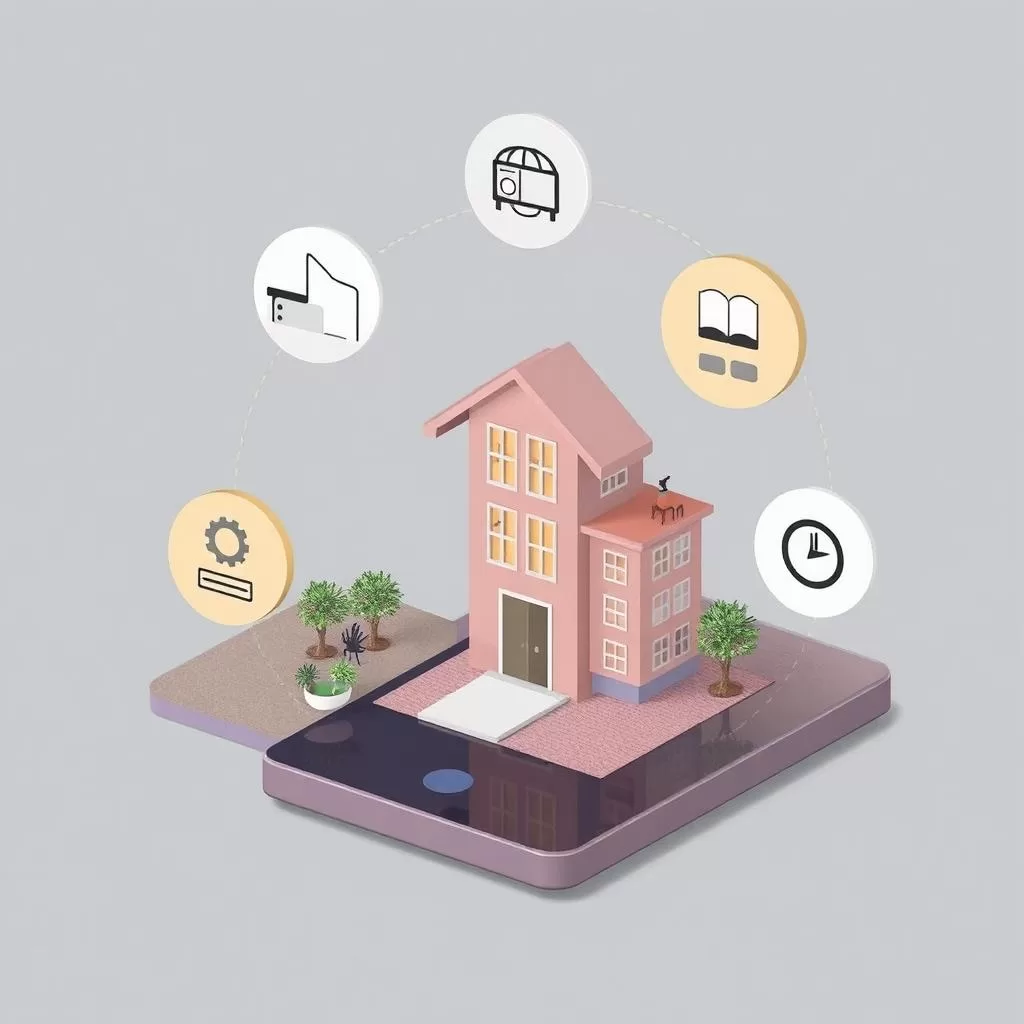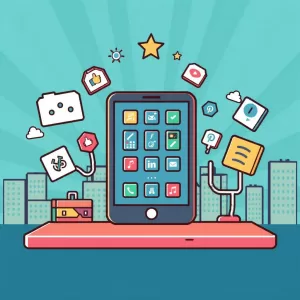Artificial Intelligence in 2025: How AI is Changing the World
Artificial Intelligence (AI) is no longer a distant or futuristic concept.it is a present-day reality that is rapidly reshaping our world in 2025 and beyond. AI is not just enhancing isolated sectors; it is revolutionizing the way entire industries operate. From streamlining diagnostic procedures in healthcare and automating risk assessment in finance, to personalizing learning experiences in education and powering the smart devices we use daily, AI is becoming an invisible yet indispensable force in our lives. As it continues to evolve, becoming smarter, faster, and more deeply integrated.
But what are the biggest AI advancements, and how will they impact businesses and consumers?
What You’ll Learn in This Article:
✅ How AI is evolving in 2025 and beyond
✅ The industries being revolutionized by AI
✅ Future AI trends, challenges, and ethical concerns
What is AI and How Does It Work?
AI refers to computer systems that can learn, analyze, and make decisions like humans. There are different types of AI:
Artificial Intelligence (AI) is a broad field powered by several key technologies that enable machines to think, learn, and act intelligently. As we look deeper into how AI is transforming our world in 2025, it’s essential to understand the core components driving this revolution:
Machine Learning (ML): Learning from Data to Predict the Future
First and foremost, Machine Learning forms the foundation of most AI applications. It enables systems to analyze vast amounts of data, identify patterns, and make accurate predictions or decisions without being explicitly programmed. From personalized recommendations to fraud detection, ML is everywhere.
Deep Learning: Mimicking the Human Brain
Building upon traditional ML, Deep Learning uses layered neural networks that simulate how the human brain processes information. This approach allows AI to handle more complex tasks—such as facial recognition or autonomous driving—by making sense of unstructured data like images, audio, and text.
Natural Language Processing (NLP): Bridging the Gap Between Humans and Machines
Next, Natural Language Processing empowers AI to understand, interpret, and generate human language. Whether it’s powering chatbots, voice assistants, or real-time translation tools, NLP allows for smoother interaction between people and machines—making AI more intuitive and accessible.
Computer Vision: Seeing and Understanding the Visual World
Finally, Computer Vision gives AI the ability to interpret visual information. It enables machines to recognize objects, detect anomalies, and even understand scenes from images and video. This technology is widely used in fields like healthcare (e.g., analyzing X-rays), security (e.g., facial recognition), and retail (e.g., automated checkout systems).
💡 For example, AI-powered chatbots, self-driving cars, and voice assistants like Siri and Alexa.
🔗 Related: Edge AI: Artificial Intelligence at the Edge
How Artificial Intelligence is Transforming Industries in 2025
Healthcare & Medical Research
In recent years—and especially by 2025—Artificial Intelligence is revolutionizing the healthcare industry, dramatically improving how we diagnose diseases, develop treatments, and care for patients. Thanks to its ability to process vast amounts of data quickly and accurately, AI is helping medical professionals deliver better outcomes faster than ever before. Here’s how:
Drug Discovery: Accelerating the Path to New Medicines
In addition, AI is dramatically speeding up the complex and costly process of discovering new drugs. What once took years of trial and error in labs can now be accomplished in a fraction of the time. AI models can predict how different chemical compounds will interact with the human body, helping researchers identify promising candidates for vaccines and medicines much more efficiently—an innovation that proved invaluable during the COVID-19 pandemic and continues to advance in 2025.
AI-Assisted Diagnosis: Detecting Diseases Faster and More Accurately
To begin with, AI-powered diagnostic tools can analyze medical images (such as X-rays, MRIs, and CT scans) and patient data at lightning speed. In many cases, these systems can identify diseases like cancer, pneumonia, or diabetic retinopathy even more accurately than experienced doctors. As a result, patients receive earlier diagnoses and can begin treatment sooner—often improving their chances of recovery.
Personalized Treatment: Tailoring Care to the Individual
Moreover, AI is enabling a shift from one-size-fits-all care to precision medicine. By analyzing a patient’s genetic makeup, lifestyle, and medical history, AI systems can recommend treatment plans that are specifically optimized for each individual. This leads to more effective therapies, fewer side effects, and a better overall patient experience.
💡 For example, AI diagnosed breast cancer 36% earlier than traditional methods in a Harvard study.
Finance & Banking
In the financial sector, AI is transforming how banking and investing work, making them more secure, efficient, and intelligent. From real-time fraud detection to fully automated investment strategies, AI is reshaping the way money is managed in 2025. Here’s how:
Automated Trading: Predicting Markets in Milliseconds
Furthermore, AI-driven trading algorithms are making split-second decisions based on vast amounts of market data. These tools can identify patterns, predict price movements, and execute high-frequency trades much faster than any human. This gives traders a competitive edge and allows for more efficient, data-driven market strategies.
Fraud Detection: Stopping Scams Before They Happen
First and foremost, AI plays a critical role in enhancing security. By continuously analyzing millions of transactions in real time, AI can quickly detect unusual patterns and flag suspicious activity—often before a human could even notice. This proactive approach helps banks and financial institutions prevent fraud, protect customer accounts, and reduce financial losses.
AI Financial Advisors: Smart Investing with Robo-Advisors
Additionally, AI-powered robo-advisors are changing how people invest. These systems use algorithms to assess an individual’s financial goals, risk tolerance, and market conditions—then automatically build and manage a personalized investment portfolio. As a result, more people now have access to smart, low-cost investment guidance without needing a traditional financial advisor.
💡 For example, JPMorgan Chase uses AI to analyze millions of financial contracts instantly.
🔗 Related: Blockchain & AI in Finance
AI in Marketing & Content Creation
In the fast-paced world of digital marketing, AI is becoming a powerful ally—personalizing campaigns, streamlining content creation, and improving customer engagement like never before. As we move through 2025, businesses are leveraging AI to better understand their audiences and deliver more relevant, targeted messaging across every channel. Here’s how it’s happening:
Predictive Analytics: Recommending What Customers Want Next
Finally, AI uses predictive analytics to analyze customer behavior and anticipate future actions. This allows marketers to recommend products, send personalized emails, and serve relevant ads based on individual preferences and browsing habits. The result? Higher conversion rates, increased customer satisfaction, and more efficient use of marketing budgets.
AI-Generated Content: From Headlines to Video Scripts
To begin with, AI tools are now capable of creating high-quality marketing content at scale. Whether it’s writing blog posts, social media captions, product descriptions, or even full video scripts, AI can generate compelling copy in seconds. This not only saves time and resources but also helps marketers stay consistent and creative under tight deadlines.
Chatbots & Customer Support: Always-On Engagement
Furthermore, AI-powered chatbots are revolutionizing customer service. These virtual assistants can answer questions, resolve issues, and guide users through the sales funnel—24/7 and in real time. As a result, businesses can enhance user experience, reduce response times, and free up human agents for more complex tasks.
💡 For example, Netflix uses AI to recommend shows based on your viewing history.
AI in Education
In the field of education, AI is playing a transformative role by making learning more personalized, efficient, and inclusive. As digital classrooms and remote learning become the norm, AI-powered tools are enhancing how students learn and how educators teach. Here’s how AI is reshaping education in 2025:
Automated Grading: Faster Feedback for Better Learning
Moreover, AI tools are automating the grading of assignments, quizzes, and even essays. By quickly evaluating student work, AI helps teachers save time and provide timely, consistent feedback. This not only lightens educators’ workloads but also enables students to track their progress and improve more efficiently.
Personalized Learning: Tailoring Education to Every Student
To start, AI enables adaptive learning platforms that customize lessons based on a student’s individual strengths, weaknesses, pace, and preferences. Whether a student is struggling with math or excelling in science, the system adjusts the content and difficulty level in real time—ensuring a more effective and engaging learning experience.
AI Tutors: On-Demand Help, Anytime, Anywhere
Additionally, AI-driven chatbots and virtual tutors are providing instant homework help and answering questions 24/7. These digital assistants use natural language processing to explain concepts clearly, guide students through problem-solving, and offer extra practice—bridging the gap when human teachers aren’t immediately available.
💡 For example, Duolingo’s AI adapts lessons based on user mistakes to improve learning.
AI in Transportation & Autonomous Vehicles
In the realm of transportation, AI is driving a revolution in safety, efficiency, and mobility. From roads to skies, intelligent systems are making vehicles smarter, traffic flow smoother, and travel more sustainable. By 2025, AI isn’t just enhancing how we move—it’s reimagining what transportation can be. Here’s how:
AI in Aviation: Smarter Skies and Efficient Flights
Beyond roads, AI is also taking off in the aviation industry. Airlines are using AI to analyze weather patterns, air traffic, and fuel consumption to optimize flight routes and schedules. This not only enhances passenger safety and comfort but also improves fuel efficiency and reduces delays—benefiting both travelers and the environment.
Autonomous Taxis: Reducing Accidents and Transforming Urban Travel
First, AI-powered self-driving taxis are hitting the streets in major cities, offering a glimpse into the future of urban mobility. These vehicles use sensors, cameras, and real-time data to navigate roads safely and efficiently. By minimizing human error—which causes the vast majority of traffic accidents—autonomous taxis promise to make streets safer while also reducing travel time and costs.
Smart Traffic Systems: Smoother Commutes, Less Congestion
In addition, cities are implementing AI-driven traffic management systems to monitor road conditions, control traffic signals, and reroute vehicles in real time. This intelligent infrastructure reduces congestion, shortens commute times, and lowers emissions—creating a more efficient and eco-friendly urban environment.
💡 For example, Tesla’s AI-powered self-driving cars are improving every year.
The Future of AI: What to Expect in 2025
Generative AI & Creativity
AI will create art, music, videos, and even entire books.
✔ AI-generated movies – AI writes and directs short films
✔ Music composition – AI creates customized soundtracks
✔ AI-written books – Machines generate novels and stories
💡 For example, OpenAI’s GPT-4 can write articles, poetry, and even code.
AI & Human Jobs: Automation vs. Augmentation
Will AI replace jobs, or will it enhance human capabilities?
✔ AI automates repetitive tasks – Data entry, customer service, and logistics
✔ New AI-powered jobs – AI engineers, ethics experts, and automation specialists
✔ AI & human collaboration – Humans work alongside AI for better efficiency
💡 Example: AI automates data analysis, but humans make final decisions.
AI Ethics & Regulations
Governments are setting rules to control AI and prevent misuse.
✔ AI bias control – Ensuring fairness in hiring, lending, and legal decisions
✔ Deepfake regulations – Preventing AI-generated fake videos
✔ Privacy laws – AI must comply with data protection regulations
💡 For example, The EU’s AI Act aims to regulate high-risk AI applications.
Challenges of AI Adoption in 2025
While AI is bringing groundbreaking innovation across industries, it also raises several critical challenges and ethical concerns that must be addressed as the technology continues to evolve. As we embrace the power of AI in 2025, it’s important to consider the risks that come with it:
- 🚧 Bias in AI Models: When Algorithms Reflect Human Prejudice
To begin with, AI systems learn from data—and if that data reflects historical biases or social inequalities, the AI can unintentionally reinforce them. For example, biased training data in hiring algorithms or facial recognition tools can lead to unfair treatment based on gender, race, or socioeconomic background. Ensuring fairness in AI requires greater oversight, transparency, and diverse datasets. - 🚧 Job Displacement: Automation Reshaping the Workforce
Moreover, as AI automates routine and repetitive tasks, some jobs may become obsolete—particularly in manufacturing, customer service, and administrative roles. While new opportunities will emerge, the transition can be challenging for workers who need to reskill or adapt to rapidly changing demands in the job market. - 🚧 Security Risks: AI in the Hands of Hackers
In addition, AI systems themselves can become targets. Cybercriminals may exploit AI vulnerabilities to manipulate data, deceive facial recognition systems, or launch sophisticated phishing attacks. As AI becomes more integrated into critical infrastructure, cybersecurity must evolve to stay one step ahead of potential threats. - 🚧 Lack of Transparency: The “Black Box” Problem
Finally, many AI models—especially deep learning systems—operate like black boxes, making decisions without clear explanations. This lack of transparency poses challenges in high-stakes areas like healthcare, finance, or law, where understanding how an AI arrived at a decision is crucial for accountability and trust.
💡 For example, AI wrongly denied loans to certain groups due to biased training data.
How Businesses Can Use AI Today
🔹 Businesses Should:
✔ Automate repetitive tasks – Save time and resources
✔ Invest in AI-powered analytics – Gain deeper customer insights
✔ Train employees in AI skills – Prepare for AI-driven workplaces
🔹 Consumers Should:
✔ Learn about AI tools – ChatGPT, Google Bard, and AI art generators
✔ Use AI for productivity – AI-powered calendars, assistants, and writing tools
✔ Stay updated on AI laws – Understand privacy and security risks
Conclusion: Artificial Intelligence (AI) is Here to Stay in 2025 and beyond
By 2025, Artificial Intelligence will be deeply embedded in everyday life, driving innovation across healthcare, education, finance, transportation, and even entertainment. It’s not just about automation or replacing jobs—AI is unlocking entirely new possibilities, empowering businesses to make smarter decisions, deliver personalized experiences, and operate more efficiently.
At Teknikali Tech Experts, we help organizations harness the full potential of AI through strategic ICT consulting and smart technology solutions. Whether you’re looking to integrate AI-powered tools, automate workflows, enhance cybersecurity, or personalize customer experiences, our team is here to guide you every step of the way.
The future belongs to those who adapt—and with AI, that future starts now. Let Teknikali Tech help you stay ahead of the curve.
Frequently Asked Questions About Artificial Intelligence in 2025
What is Artificial Intelligence and how is it used in 2025?
Artificial Intelligence (AI) refers to computer systems that can perform tasks that typically require human intelligence, such as learning, reasoning, problem-solving, and decision-making. In 2025, AI is widely used across industries like healthcare, finance, education, transportation, and marketing to enhance efficiency, automate processes, and improve user experiences.
How is Artificial Intelligence (AI) improving healthcare in 2025?
AI is transforming healthcare through early disease detection, personalized treatment plans, robotic surgery assistance, and faster drug discovery. AI-driven diagnostic tools can analyze medical data more accurately and quickly than traditional methods, leading to better patient outcomes.
Is Artificial Intelligence (AI) replacing human jobs in 2025?
AI is automating repetitive and low-skill tasks, which may lead to job displacement in some sectors. However, it is also creating new roles in AI development, data analysis, cybersecurity, and digital transformation. The key is upskilling and adapting to the evolving job market.
What are the risks of using Artificial Intelligence (AI) in 2025?
The main risks of AI include bias in decision-making, job displacement, security vulnerabilities, and lack of transparency. Addressing these challenges requires ethical design, human oversight, and strong data governance practices.
How is AI used in education today?
AI enhances education by personalizing learning experiences, offering real-time tutoring via chatbots, and automating administrative tasks like grading. It helps students learn at their own pace while supporting teachers with intelligent tools.
What role does AI play in financial services?
AI is widely used in banking and finance for fraud detection, automated trading, robo-advisory services, and risk assessment. It helps institutions make faster, data-driven decisions while improving customer experience.
How is Teknikali Tech helping businesses use AI?
Teknikali Tech Experts provides ICT consulting services that help businesses strategically implement AI technologies. This includes AI integration in business processes, automation solutions, data analytics, cybersecurity, and smart system design tailored to each client’s needs.

💬 How do you think AI will impact daily life? Share your thoughts in the comments!
Share this content:







Post Comment